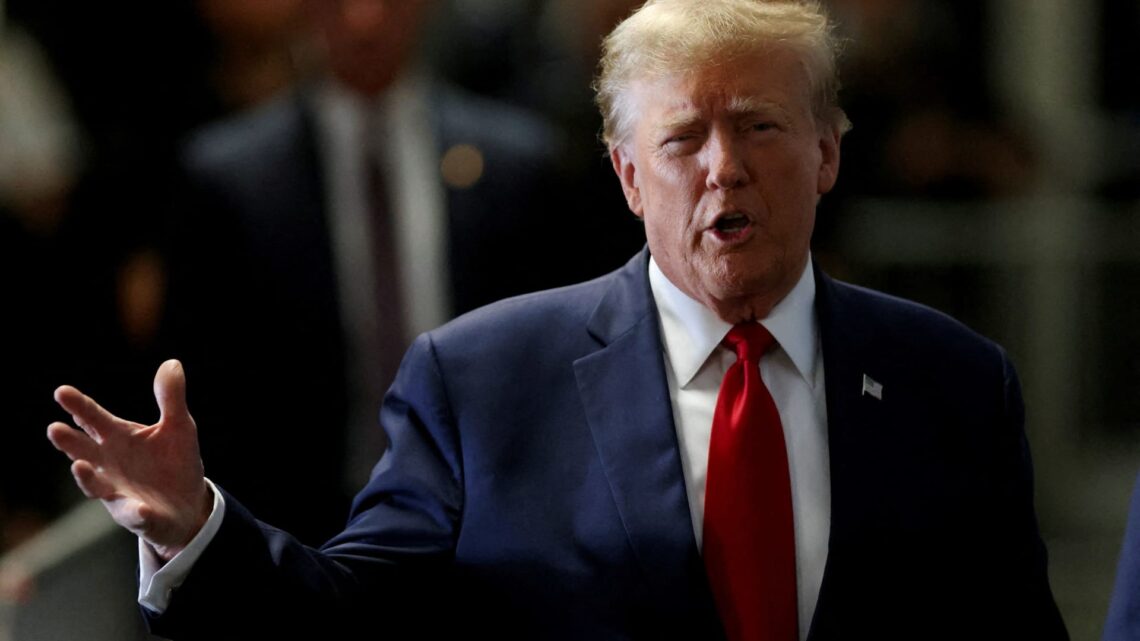Former U.S. President Donald Trump gestures on the day of a court hearing on charges of falsifying business records to cover up a hush money payment to a porn star before the 2016 election, in New York State Supreme Court in Manhattan, New York, on Feb. 15, 2024.
Andrew Kelly | Reuters
Former President Donald Trump is gearing up to fight a massive fine in the New York business fraud case that threatens to erase most of the cash he says he has on hand.
But first, he has to secure a bond — and that might not be so easy.
Trump on Friday was ordered to pay about $355 million in penalties, plus more than $98 million in interest after a judge found the former president liable for fraud for manipulating financial statements given to lenders. Every day, the accruing interest adds $87,502 to Trump’s bill.
Unless he wants to pay the entire penalty while his expected appeal is considered, Trump will need to post an appeal bond. This is typically up to 120% of the judgment plus the current interest.
At that rate, Trump’s original ruling with interest would indicate he will need to secure a bond worth more than $540 million. But it’s unlikely that the real estate baron will be able to use his properties as collateral.
It’s “not very attractive to take real estate as collateral,” said Neil Pedersen, owner of New York-based surety bond agency Pedersen & Sons.
Trump could have to liquidate some assets to secure a bond, said Pedersen. The bond company will also charge a fee that could total millions of dollars.
An appeal of Judge Arthur Engoron’s ruling could take years to play out.
A flag supporting former U.S. President Donald Trump outside Trump Tower in New York on Oct. 1, 2023.
Yuki Iwamura | Bloomberg | Getty Images
Another complicating factor: Trump’s status as a presidential front-runner.
It’s an “unprecedented” situation for a potential bond company to commit to, Pedersen said.
“No one’s ever had to enforce an indemnity agreement against what could very well be the next U.S….
Read the full article here








